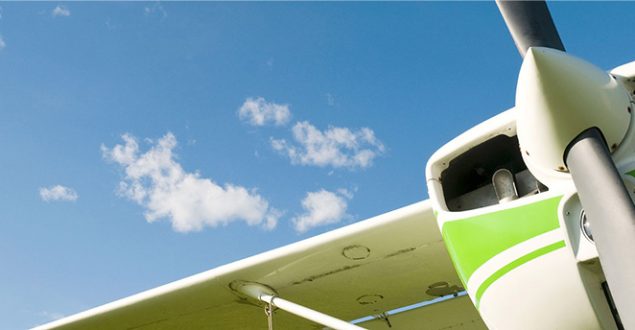The instrument rating (or IFR for short) is typically the next step after you complete your private pilot certificate (PPL). This entire training course focuses on learning to safely fly the aircraft utilizing the aircraft avionics, radios, communication and navigation equipment alone.
Because weather is unpredictable, it is almost essential to have an instrument rating if you plan to fly long distances, at night or cross-country often. As a private pilot, you are restricted to flying under VFR rules (looking out the windows) and therefore are limited when you can fly. An instrument pilot is able to fly in less than perfect weather and through clouds using the aircraft’s precision guidance instrumentation.
Our instrument training curriculum is FAA Part 141 approved. This means our program has met the highest training standards designated by the Federal Aviation Administration. As a bonus, FAA approval also allows our students to enjoy fewer required flight hours, with the average student completing the training 35-45 hours of flight time.
Optionally, the student can elect to use our Level 5 FTD simulator to substitute up to 40% of their flight lessons (14 flight hours). That’s a significant cost savings.
Program Structure
Each student’s IFR program is custom developed to meet their personal needs, goals and lifestyle.
Our IFR course is divided into three stages integrating simulator, flight and academic lessons.
- Stage 1: Emphasizes basic IFR flight operations. The student will learn precision airplane attitude control by instrument reference and gain greater competence in the use of navigations systems.
- Stage 2: Introduce and train the student in holding patterns and instrument approaches, including circling and missed approach procedures. The student will learn to correctly perform holding patterns and accurate instrument approaches using full and partial panel techniques.
- Stage 3: Introduce the student to IFR cross-country procedures and to increase the student’s proficiency to the level required of an instrument rated pilot.
Our training instrument courses are specifically designed for Technically Advanced Aircraft (TAA). Our entire fleet is designated TAA and feature the Garmin G1000 “glass cockpit” avionics package. By training in a technically advanced aircraft under a FAA Part 141 syllabus you are ensured to get the most advanced flight training available.




